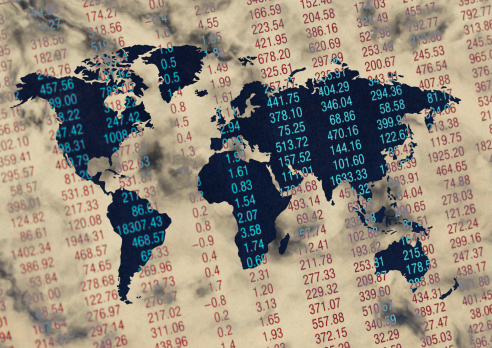Health and Healthcare
How Ebola Could Cost the World $32 Billion by End of 2015
Published:
Last Updated:
The Ebola outbreak has so far been limited, even before considering the reported cases in the United States and Spain. Still, it has been disastrous in Africa and it could get a lot worse. The latest death toll from Ebola was shown as currently being 3,439 in the three nations of Guinea, Liberia and Sierra Leone. Now we have an economic impact assessment from The World Bank that projects what the potential costs could be if the epidemic were to significantly infect people in neighboring countries where there are much larger economies. It is massive when you consider that this is covering Africa — the two-year regional financial impact was projected to be up to $32.6 billion by the end of 2015.
Comparing the cost when there have been more than 3,400 deaths is hard for many to mentally grasp. Still, it takes funding to treat and contain virus and disease outbreaks. It also can cripple economies during an outbreak.
The World Bank’s new analysis shows that the economic impacts of Ebola are already very serious in the core three countries. The forecast warns that the cost could become catastrophic under a slow-containment, high Ebola scenario.
The good news: the economic impact could be limited if immediate national and international action stop the epidemic. In broader regional and economic terms, it should be kept in mind that neighboring countries have limited border access, airline flights and transportation have already been interrupted, and all of this limits trade.
ALSO READ: The Worst Economies in the World
The new World Bank group report said:
As it is far from certain that the epidemic will be fully contained by December 2014 and in light of the considerable uncertainty about its future trajectory, two alternative scenarios are used to estimate the medium-term (2015) impact of the epidemic, extending to the end of calendar year 2015. … With Ebola’s potential to inflict massive economic costs on Guinea, Liberia, and Sierra Leone and the rest of their neighbors in West Africa, the international community must find ways to get past logistical roadblocks and bring in more doctors and trained medical staff, more hospital beds, and more health and development support to help stop Ebola in its tracks.
A “low Ebola” scenario corresponds to rapid containment within the three most severely affected countries, while “high Ebola” corresponds to slower containment in the three countries, with broader regional contagion. 24/7 Wall St. has also outlined the cost elsewhere of these outbreaks. We have signaled the following nations in an Ebola analysis:
24/7 Wall St. showed what the major fallout was in the Ebola drug candidate stocks after the Ebola case was confirmed in the United States. With fresh reports that air passengers leaving Ebola regions will face additional screening at airports and the like, this Ebola outbreak’s impact seems far from being over any time soon.
ALSO READ: The Most Corrupt Countries in the World
The last few years made people forget how much banks and CD’s can pay. Meanwhile, interest rates have spiked and many can afford to pay you much more, but most are keeping yields low and hoping you won’t notice.
But there is good news. To win qualified customers, some accounts are paying almost 10x the national average! That’s an incredible way to keep your money safe and earn more at the same time. Our top pick for high yield savings accounts includes other benefits as well. You can earn up to 3.80% with a Checking & Savings Account today Sign up and get up to $300 with direct deposit. No account fees. FDIC Insured.
Click here to see how much more you could be earning on your savings today. It takes just a few minutes to open an account to make your money work for you.
Thank you for reading! Have some feedback for us?
Contact the 24/7 Wall St. editorial team.